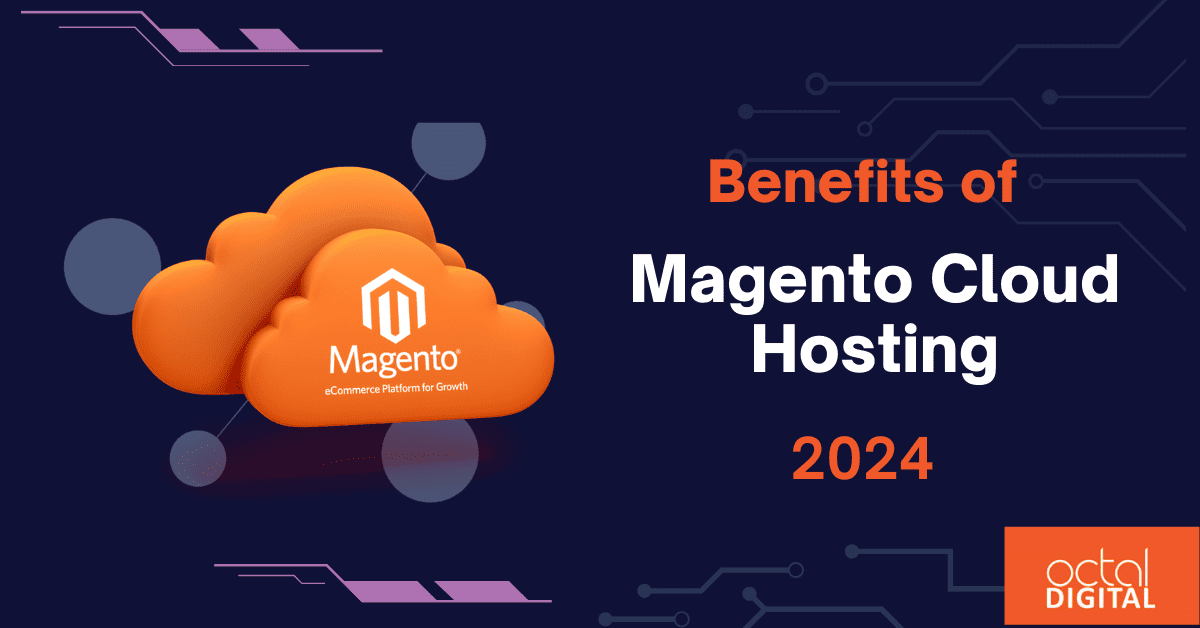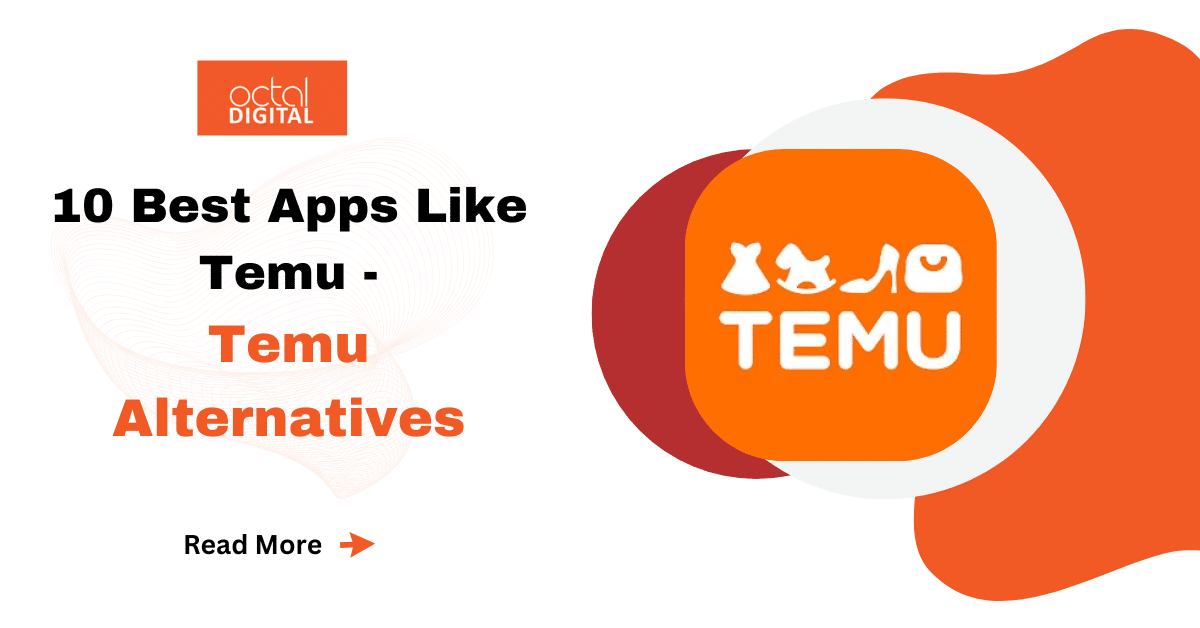Robust e-commerce platform Magento has emerged as a key player for companies looking to provide seamless online shopping experiences. Choosing the best hosting solution becomes essential as the demands placed on e-commerce websites increase.
For companies looking for dependable and high-performance solutions, Magento Cloud hosting offers a dynamic and scalable infrastructure that can handle the resource-intensive nature of Magento and provide a number of advantages. We’ll look at the many benefits of using cloud hosting to power your Magento store in today’s blog post.
Table of Contents
ToggleUnderstanding Magento Cloud Hosting Challenges

Magento, with its feature-rich capabilities, brings a unique set of challenges when it comes to hosting. The resource-intensive nature of the platform, coupled with the dynamic requirements of e-commerce, often poses scalability challenges for traditional hosting solutions. As your business grows, the limitations of fixed server resources become evident, leading to performance bottlenecks and potential downtime issues. To overcome these challenges, businesses are increasingly turning to cloud hosting solutions.
We’ll now explore how Magento cloud hosting addresses these specific challenges, offering a scalable and reliable environment for hosting Magento and ensuring optimal performance for your online store.
Now, let’s dive deeper into the key features that make Magento cloud hosting an ideal solution for Magento.
Key Benefits of Magento Cloud Hosting
Magento is a dominant force in eCommerce platforms for companies looking to build a strong and successful online presence. But only in alignment with a hosting solution that facilitates scalability, security, and peak performance can its true potential be fully realized. This is where cloud hosting for Magento steps in as the game-changer, providing a host of benefits especially designed to meet Magento’s specific needs.
Read our latest blog: Strategic UI/UX for SEO in 2024, where we shared a technical guide on how to combine UI/UX for SEO best practices for a unique online presence.
1. Enhanced Scalability and Performance:
The built-in scalability of Magento cloud hosting is one of its most alluring features. Cloud infrastructure, as opposed to conventional on-premise solutions, enables your store to easily adjust to variations in traffic. The cloud automatically allots extra resources during busy times of year or unanticipated spikes in demand, guaranteeing seamless operation and avoiding annoying downtime. The ability to scale dynamically results in a user experience that is consistently quick and responsive, which is essential for increasing customer satisfaction and conversion rates. The following are some features of cloud hosting that allow for scalability:
- Auto-Scaling Policies:
-
-
- Magento Cloud hosting provides auto-scaling policies that, in response to predetermined parameters like CPU, memory, or incoming traffic, automatically change the number of servers or resources allotted to your Magento application. During periods of high demand, this automated scaling guarantees peak performance.
-
- Elastic Load Balancing:
-
-
- Incoming traffic is split among several servers via load balancing in order to avoid overloading any one of them. Elastic load balancing is a feature of Magento Cloud hosting platforms that dynamically routes requests to the servers that are least busy and most available. This raises fault tolerance while also increasing performance.
-
- Resource Orchestration:
-
- Hosting platforms for Magento Cloud frequently come with orchestration tools that let you plan and automate resource provisioning. Infrastructure as Code (IaC) tools, such as Terraform or AWS CloudFormation, enable the codification of your Magento infrastructure, facilitating consistent and reproducible deployments.
2. Robust Security:
In 2024, it’s critical to protect sensitive consumer information! Cloud servers make significant investments in intrusion detection systems, firewalls, and frequent vulnerability assessments, among other strong security measures. Furthermore, data encryption adds an extra degree of security, guaranteeing that your online store continues to be a stronghold against hostile assaults. You are able to focus on expanding your company with this peace of mind, free from the continual fear of security lapses.
Here is how it works:
- Firewalls and Intrusion Detection Systems (IDS):
-
-
- Magento Cloud hosting actively detects and prevent suspicious activity by monitoring and analyzing network traffic with sophisticated firewalls and intrusion detection systems. By acting as a barrier, these security layers stop potential exploits and unauthorized access to your Magento store.
-
- Regular Vulnerability Assessments:
-
-
- Regular penetration tests and vulnerability assessments help to maintain continuous security. Platforms for cloud hosting carry out both manual and automated evaluations to find vulnerabilities. This guarantees that potential vulnerabilities are promptly patched and mitigated before they can be used against you.
-
- Data Encryption:
-
-
- Encryption is essential for protecting confidential information. Strong encryption techniques are used by Magento Cloud hosting, both in transit and at rest. While data in transit is protected by protocols like TLS/SSL, data at rest is encrypted and kept in databases or storage systems. This cryptographic safeguard makes sure that the intercepted data stays unreadable and unusable even in the event of unauthorised access.
-
- Identity and Access Management (IAM):
-
-
- Cloud platforms provide IAM services, allowing you to define and manage access controls for your Magento infrastructure. Granular permissions ensure that only authorized personnel can access critical resources, minimizing the risk of internal security breaches.
-
- Security Compliance Standards:
-
- Cloud hosting complies with industry-specific security compliance standards, like HIPAA for data pertaining to healthcare or PCI DSS for payment data protection. Compliance adds an extra degree of assurance for you and your customers by making sure your Magento store complies with all applicable regulations.
3. Cost-Effectiveness and Efficiency:
Magento Cloud hosting lowers initial costs by doing away with the requirement for a large upfront investment in pricey hardware and software. It’s also incredibly affordable for companies of all sizes because you only pay for the resources you use. Moreover, cloud providers manage server updates and maintenance, freeing your IT staff to concentrate on important business goals and improving overall operational effectiveness
Read our recently uploaded blog where we explored Drupal and it’s features “Drupal CMS: A Right Choice in 2024?”.
4. Automatic Backups and Disaster Recovery:
Losing data can have disastrous effects on an online store. Automatic backup options are often provided by Magento Cloud hosting services, guaranteeing that your priceless information is safely kept and easily accessible in the event of unanticipated circumstances. With the help of this thorough disaster recovery plan, you can quickly restore your store and resume operations with the least amount of disruption possible. It also minimises downtime and potential revenue loss.
Using Magento Commerce Cloud calls for a certain level of expertise. Working with a Magento development company in the USA has its advantages. You can successfully understand and take advantage of the Magento Commerce Cloud features that are beneficial for quick scaling and conversions that are security-driven with the help of knowledgeable experts.
5. Global Reach and Content Delivery:
Content Delivery Networks (CDNs), which disperse the content of your store across geographically separated servers, are frequently integrated into cloud hosting. Regardless of the user’s location, this clever placement puts your content closer to them, improving user experience and producing noticeably faster loading times. This worldwide reach can be very helpful in growing your clientele and breaking into new markets.
- Edge Locations and Points of Presence (PoPs):
-
-
- CDNs operate through a network of strategically positioned edge locations or Points of Presence (PoPs). These edge locations house cached versions of your Magento store’s static content, such as images, stylesheets, and scripts. Cloud hosting providers collaborate with CDN services to ensure these edge locations are globally distributed, reducing latency for users accessing your store from different regions.
-
- Caching Mechanisms:
-
-
- Cloud hosting seamlessly integrates with CDN caching mechanisms. As users interact with your Magento store, static assets are cached at the nearest edge location. Subsequent requests for the same content can be served directly from the cache, minimizing the need to fetch data from the origin server. This reduces the load on your hosting infrastructure and accelerates content delivery.
-
- Anycast Routing:
-
-
- Anycast routing, a form of networking that routes user requests to the closest edge location that is available, is frequently used by CDNs. This maximizes content delivery and boosts responsiveness by guaranteeing that users are automatically redirected to the server with the lowest latency.
-
- Dynamic Content Acceleration:
-
-
- Although cloud hosting services may also have features for dynamic content acceleration, content delivery networks (CDNs) are best at caching static content. In order to make certain that users interacting with dynamic elements on your Magento store have a quick and seamless experience, this entails optimizing the delivery of individualized or frequently changing content.
-
- Real-Time Purging and Invalidation:
-
- Cloud hosting platforms offer real-time purging and cache invalidation mechanisms with CDNs. This ensures updates or changes made to your Magento store are reflected in the CDN’s cache almost instantly. It also helps in maintaining consistency across the distributed network.
6. Simplified Development and Management:
Platforms for cloud hosting frequently offer user-friendly interfaces and environments that are already set up and ready for Magento. By streamlining the process of development and deployment, this frees up developers to spend their time on creating innovative features and functionalities. Furthermore, automatic updates and patches lessen the workload for your IT staff by keeping your store still compatible with the most recent versions of Magento and security guidelines.
In addition, Magento patch management and automatic updates are frequently enabled by cloud hosting companies. By carrying out this, you can be sure that the security patches and feature updates for your Magento store are installed on the most recent versions. By minimising manual intervention, automated updates maintain your store current and safe without taxing your IT staff.
7. Integration with Third-Party Services:
Payment gateways, marketing automation platforms, analytics tools, and other popular third-party tools and services are a few of the Magento cloud hosting companies that offer seamless integration with Magento. This simplifies your company’s operations overall and does away with the need for confusing integrations.
- API Integrations:
-
-
- Cloud hosting platforms often provide robust Application Programming Interfaces (APIs) that facilitate smooth integration with third-party tools. Magento, being highly extensible, can leverage these APIs to connect seamlessly with various services, including payment gateways, shipping providers, and CRM systems.
-
- Webhooks and Event-Driven Architectures:
-
-
- Modern cloud hosting environments support event-driven architectures and webhooks. This enables real-time communication between Magento and external systems. For instance, an order placed on your Magento store can trigger events that seamlessly update inventory levels, initiate shipping processes, or engage marketing automation workflows. However, to use the true potential of a Magento eCommerce website builder, you need to hire the best Magento eCommerce development company.
-
- Containerization and Microservices:
-
-
- Containerization technologies like Docker and orchestration tools such as Kubernetes are often integral to cloud hosting. They facilitate the deployment of modular, containerized services. This approach aligns with the microservices architecture, allowing specific components of your e-commerce ecosystem to be independently developed, deployed, and scaled.
-
- Analytics and Big Data Integration:
-
- Cloud hosting environments provide easy integration with analytics and Big Data tools. This allows you to harness the power of data for informed decision-making. Integration with platforms like Google Analytics or custom data warehouses ensures that you can analyze user behavior, track conversions, and derive actionable insights directly from your Magento store.
8. Environment-Friendly:
Magento Cloud hosting offers a more sustainable solution compared to traditional on-premise hosting. Cloud providers utilize efficient hardware and software, often powered by renewable energy sources, resulting in a smaller carbon footprint. This aligns with the growing importance of environmental responsibility for businesses.
9. Improved Collaboration and Version Control:
Cloud hosting facilitates collaboration between developers and other team members by providing a centralized platform for accessing and managing store files. Version control features allow for easy tracking of changes and reverting to previous versions if needed, streamlining the development process and minimizing the risk of errors.
10. Continuous Innovation and Feature Updates:
Magento Cloud hosting providers are constantly innovating and adding new features to their platforms. This ensures your store benefits from the latest advancements in technology and security without requiring significant infrastructure upgrades on your end.
Magento Cloud hosting supports the implementation of automated deployment pipelines. Developers can set up Continuous Integration/Continuous Deployment (CI/CD) pipelines that automate the testing, building, and deployment of Magento applications. This ensures that code changes are systematically and reliably pushed to production, reducing the risk of errors and streamlining the release process.
Conclusion:
By embracing Magento cloud hosting, Magento stores unlock a treasure trove of benefits that empower them to thrive in the competitive eCommerce landscape. From enhanced scalability and security to cost-effectiveness, simplified management, and environmental responsibility, Magento cloud hosting provides the solid foundation needed to build a successful online business. As you embark on your eCommerce journey, carefully consider the advantages of Magento cloud hosting and unlock the full potential of your Magento store.
If you want to get a robust Magento Commerce, connect with the top Magento eCommerce development company in the USA, Octal Digital. We will help you in developing an amazing eCommerce Store and launching that. The ongoing maintenance makes this company the most reliable team of top US-based Magento developers. To learn more about them and discuss your requirements you can get a quote from our top experts today!
Frequently Asked Questions
How does Magento Cloud Hosting work?
Magento Cloud hosting means your Magento website will be hosted on cloud-based servers. It works by storing website data across various virtual servers rather than on a single server. So, if one server goes down, your website will still work smoothly.
Which one is better—Magento Cloud Hosting or Traditional Hosting?
As compared to regular hosting, Magento Cloud Hosting brings numerous benefits. These encompass faster and more dependable performance, increased flexibility to handle growth, improved protection against online threats, and effortless connection with various services. Additionally, it offers a stronger foundation capable of managing high visitor loads and unexpected surges in activity without sacrificing efficiency.
How Can I Choose a Cloud Hosting Provider?
When picking a cloud hosting provider, think about things like cost, how well it works, how much it can grow with you, how reliable it is, how safe it keeps your stuff, and how helpful their customer support is. Look at what your business needs and goals are, and compare different providers to find the best one. Also, check out what other customers have said to get an idea of what it’s like to use.









